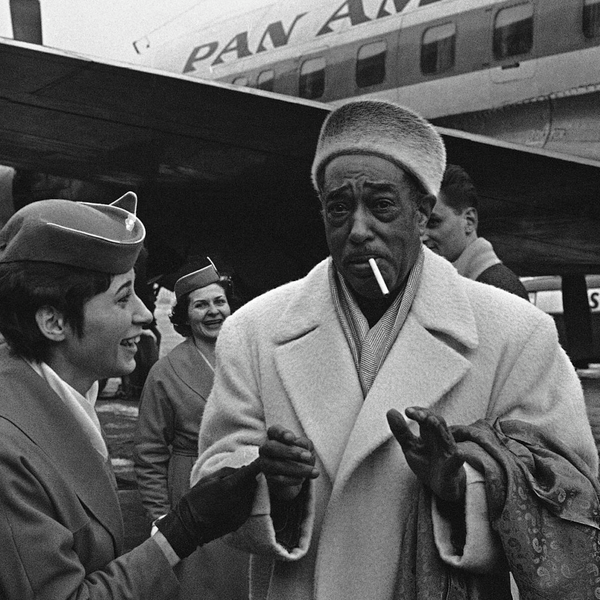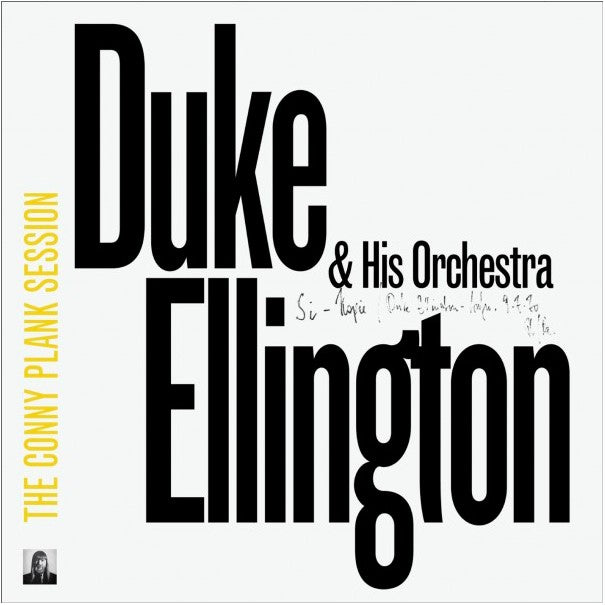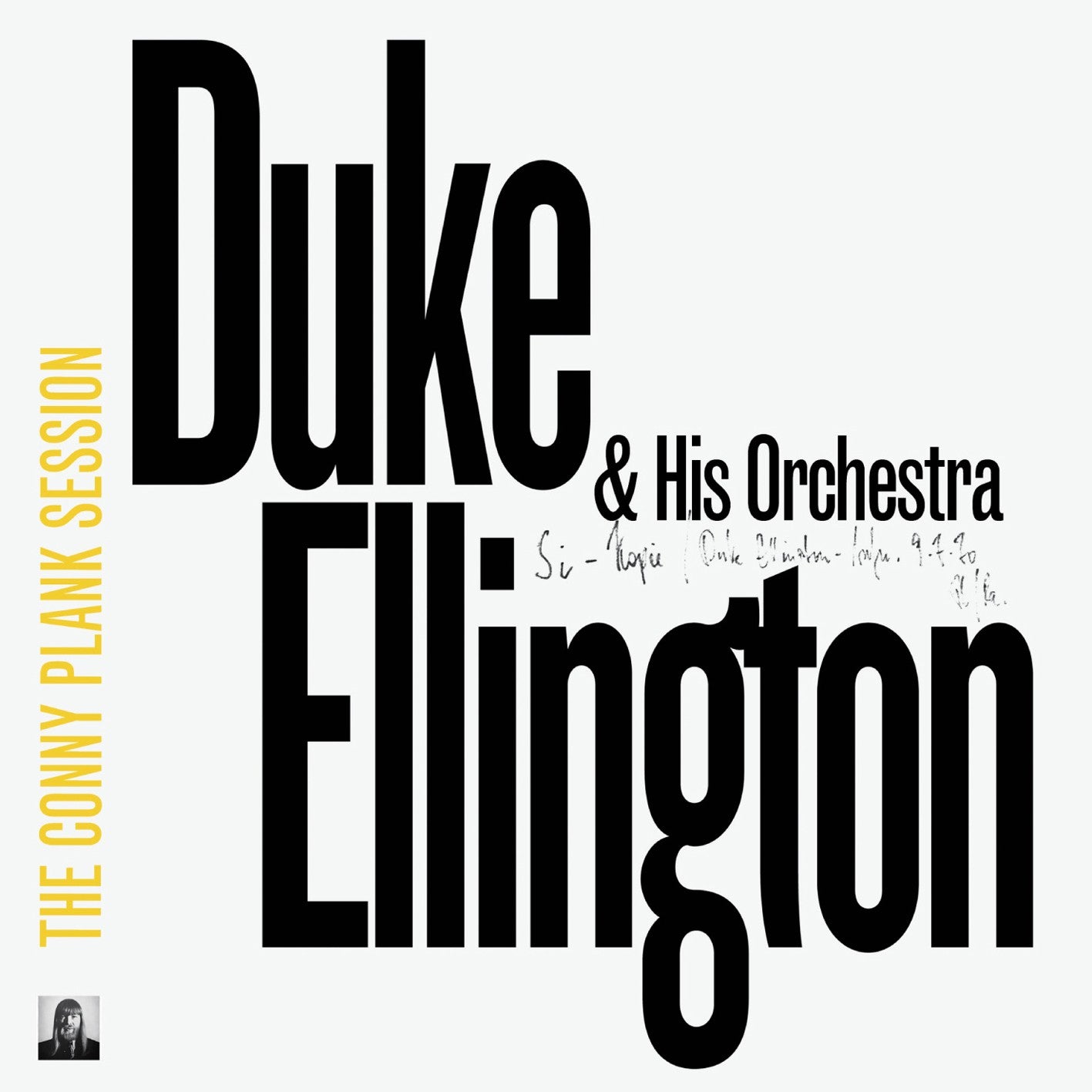Duke Ellington
The newly discovered recordings of Duke Ellington offer a unique insight into the sonic genius of the jazz master. These musical treasures reveal a fascinating moment of collaboration between one of the greatest jazz composers and the visionary sound engineer Conny Plank.
With Bach, as with Ellington, you can sit down at the piano just to spell out the chords and something great will still happen. This music is so rich and almost indestructible.
Duke Ellington's musical work seems well documented: The probability of a good, unpublished Duke Ellington-Recording is rather low. So when I got the call from Grönland Records got that she had found exactly such a thing in the estate of Conny Plank and asked me if I wanted to listen to it, I felt quite honored and was excited. The music of Ellington is – in my world view – for jazz what Bach’s work is for classical music, THE great reference point; and if you want to put it even more on the pedestal: the Old Testament, the Alpha and Omega. With Bach as with Ellington you can sit down at the piano just to spell out the chords and something great will still happen. This music is so rich and almost indestructible.
I heard the recordings for the first time in the Grönland office. One session, two songs: Alerado and Africa, three takes of each. These are not just alternate takes, as you often find on reissues of jazz classics, you can hear how Ellington works. He doesn't just look for the best take for a clearly defined thing, he tries things out. The tempos change, solo instruments are swapped, and on the last take of Afrique you can even hear a vocal soprano.
Alerado is a straightforward swing number, it offers Wild Bill Davis on the organ and especially Cat Anderson on the trumpet form the basis for remarkable sound and solo concepts. Afrique's structure is freer and more avant-garde, based on a tom-based beat that is maintained throughout the whole piece and over which free improvisations and parts of arrangements are laid.
Apart from the music, this recording is also a document of a special moment: an American jazz giant at the end of his life meets a young sound engineer and producer who is preparing to give pop a new sound - exciting, isn't it?
I knew who Ellington was, but from Conny Plank I knew nothing, I must confess to my shame. Or more precisely: I knew Conny's work, but I did not know that it had anything to do with him: Kraftwerk, Eurythmics, Ultravox, DAF I grew up with 80s synth pop, but I didn't realise how important Conny was to the whole environment. The producer as a star in the front row is a concept that only really became possible with Rick Rubin. Conny would have had the weight to be in the front row, but - based on everything I know about him now - he probably wouldn't have wanted to be. In keeping with the Prussian motto: more substance than appearance.
The moment of this encounter is also the core of an important narrative of the Plank family. The Wikipedia entry on Conny Plank claims that Wolfang Hirschmann gave Conny responsibility for this recording. Wolfgang Hirschmann is a sound engineer and long-time leader of the WDR Big Band. I spoke to Mr. Hirschmann on the phone. He knew nothing about these recordings, and he also thought that Conny was already in Hamburg at the time. There was even a brief question as to whether Justus Liebich had made the recordings (he was working in the Rhenus Studio at the time).
Mr. Liebich was kind enough to check the master: the recording is by Conny. So that is certain. The location is also certain: the Rhenus Studio Cologne. The date is not clear,
Wikipedia says April 27, 1970, the date on the tapes themselves and the entry in Ellingtonia say July 9, 1970Ellingtonia. The circumstances are also not clear: for example, who is the singer who sings on the third take of Afrique? Stephan Plank Even his mother suspected it, Mr. Hirschmann speculated that the Duke had a Scandinavian love affair … myths and legends.
Stephan Plank remembers his mother telling the story of this session like this: Duke Ellington was looking for a place to rehearse in Cologne, Conny asked the studio owner to make the Rhenus rooms available and politely asked the Duke whether he could document the rehearsals, quite simply, with a stereo pair of microphones. The first digitization of the original tape also made this version seem plausible, it was relatively poor in highs and therefore sounded a bit “rehearsal room” – but Ingo Krauss suspected that this sound had nothing to do with the recording, but with a poorly adjusted tape machine. After Conny's death, Ingo worked as the responsible sound engineer in Plank's studio in Wolperath, and his suspicions were correct. The present recording was digitized again by him himself, and this version is much more brilliant.
During research, it emerged that two takes had already been released on CD. However, these releases were mastered more heavily, whereas Ingo's version is natural.
Ingo Krauss The history of the recording also Christa Planks Perspective. Her version goes like this: Ellington had rented the Rhenus Studio at his own expense to make stockpile recordings, i.e. recordings for an unspecified, later date, and Conny was the sound man hired for this.
But the core of the story is the same in both cases: The Duke listened to the takes and praised Conny's Work. Conny revered Ellington, got recognition from the right person at the right time. Influence and validation, a stroke of luck.
That is like a knighthood and would be enough for a nice story, but Ingo's version is richer by one detail: Conny was fascinated by how big the difference in sound was between his previous work and these takes; the Ellington band simply delivered something completely different, better than he was used to. The result is a recording that Conny was also happy with. This session seems to have given his work an important boost, regardless of the master's praise.
The Conny traditional bon mot – “Every band gets the sound it deserves” – changes colour; it is no longer an arrogant statement, but a clear presentation of a simple fact: you can only produce what is there – if the performance can't do anything, the technology won't help you either. So it was both an oho and an aha moment for him.
And making sure the performance was right was one of Conny's great qualities. Artists he later produced repeatedly describe independently of each other how essential his humanity, his calmness and his overview were for the success of recordings.
And he was ready to work for it: The Scorpions, whose first album he also produced, describe how he stood in front of the band during recording and danced!
Speaking of dancing… Duke Ellington had the ritual of ending his concerts with a short lesson: how to snap your fingers when “cool” is the desired goal. To say that the meeting of Ellington and Plank ensured that Kraftwerk could later happen would be a complete exaggeration, but the idea that something of the essence of this “It Don’t Mean a Thing, If It Ain’t Got That Swing” and that it helped to give Conny the freedom to fearlessly stand in front of a band and dance is just too beautiful and makes the recordings shine in a different light. Whether this story is further modified and mystified or not.
— Henrik von Holtum




